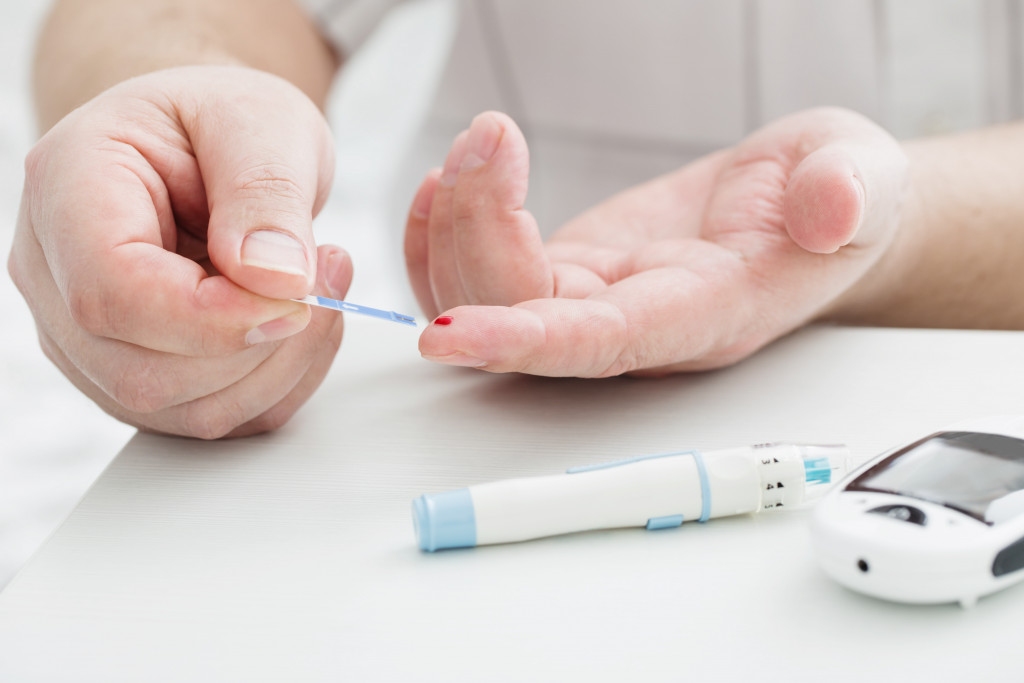If you have sensitive teeth, you know how frustrating and painful it can be to eat or drink anything hot or cold. But you’re not alone; according to the Academy of General Dentistry, over 40 million adults in the United States experience sensitive teeth.
Several things can cause sensitive teeth, including gum disease, tooth decay, wearing away of tooth enamel, and cracked teeth. And while there is no one-size-fits-all solution to sensitive teeth, you can do a few things to help mitigate the pain and discomfort. Here are a few tips that might help:
Use A Toothpaste For Sensitive Teeth
One of the easiest things you can do to help with sensitive teeth is to switch to a toothpaste made specifically for sensitive teeth. These kinds of toothpaste typically contain ingredients like fluoride and potassium nitrate, which can help to strengthen tooth enamel and reduce sensitivity.
When you first start using specialty toothpaste, you may notice that your teeth feel slightly more sensitive for the first few days. But after that initial adjustment period, you should see a noticeable difference in your sensitivity. As a bonus, many of these kinds of toothpaste also contain ingredients that can help to whiten your teeth.
Be sure to follow the directions on the toothpaste packaging; most brands recommend using a pea-sized amount of toothpaste twice a day. Too much toothpaste can irritate your gums, make your teeth more sensitive, or even lead to a condition called fluorosis.
Nonetheless, the right kind of toothpaste can make a big difference in the sensitivity of your teeth. So, it’s definitely worth a try.
Avoid Acidic Foods And Drinks
Another way to help reduce sensitivity is to avoid acidic foods and drinks, as they can wear away tooth enamel and make your teeth more sensitive.
Common acidic foods and beverages include citrus fruits, tomatoes, sodas, coffee, and wine. If you can’t cut them out entirely, at least try to limit your consumption. And be sure to rinse your mouth with water after eating or drinking anything acidic.
Being mindful of the acidic foods and drinks you consume can help protect your oral health and reduce your tooth sensitivity. As a result, you’re less likely to experience pain or discomfort when eating or drinking.
See Your Dentist Regularly
The best thing you can do for your teeth—sensitive or not—is to see your dentist regularly for checkups and cleanings. Doing so will help ensure that issues like gum disease or decaying teeth are caught early and treated accordingly.
Most dentists recommend coming in for a cleaning every six months. However, you may need to come in more frequently if you have sensitive teeth. That’s because dental cleanings can help remove tartar buildup, which can contribute to sensitivity.
So, being proactive about your oral health is one of the best ways to reduce the sensitivity of your teeth. This way, you can avoid any serious dental problems down the road.
Use a Mouthguard at Night
You can also help reduce tooth sensitivity by wearing a mouthguard at night. This method is beneficial if you grind your teeth while you sleep.
Mouthguards help protect your teeth from the harmful effects of grinding, including wear and tear, gum tissue damage, and jaw pain. Wearing a mouthguard can also help to reduce noise and protect your partner from being disturbed by your grinding.
There are two main types of mouthguards: custom-fitted and over-the-counter. Regardless of which type of mouthguard you choose, wearing one at night can help to reduce tooth sensitivity. Thus, it’s worth considering if you have sensitive teeth.

Go To An Emergency Dentist
If your teeth sensitivity becomes more unbearable than just an occasional nuisance, you might want to call an emergency dentist immediately. They can help identify the underlying cause of your sensitivity and provide you with the appropriate treatment.
In some cases, a simple filling or bonding may be all that’s needed to reduce sensitivity. However, more severe conditions may require a root canal or other dental work. Regardless, an emergency dentist can help you get the quick treatment you need to reduce your tooth sensitivity.
In doing so, you can get back to your routine without worrying about the pain or discomfort. More so, you’ll be able to enjoy your favorite foods and drinks again without worrying about your teeth’ sensitivity.
As you can see, there are plenty of things you can do to help reduce the sensitivity of your teeth. Following the above tips can relieve the pain and discomfort of sensitive teeth. So, don’t hesitate to give them a try. Your teeth will thank you for it.



